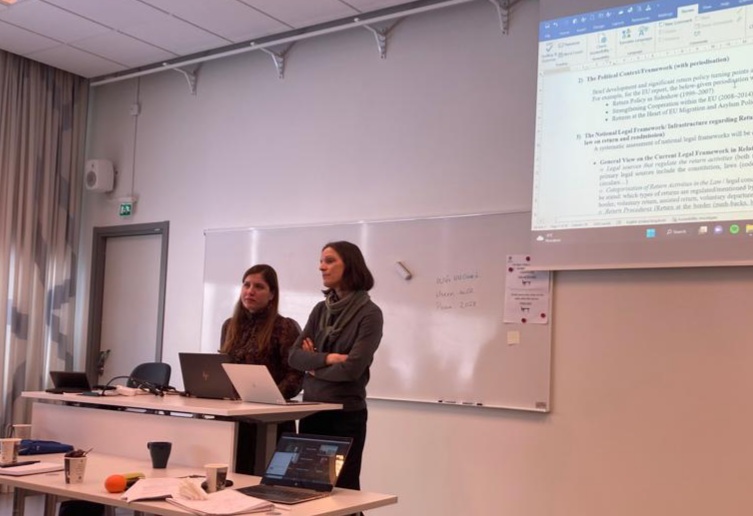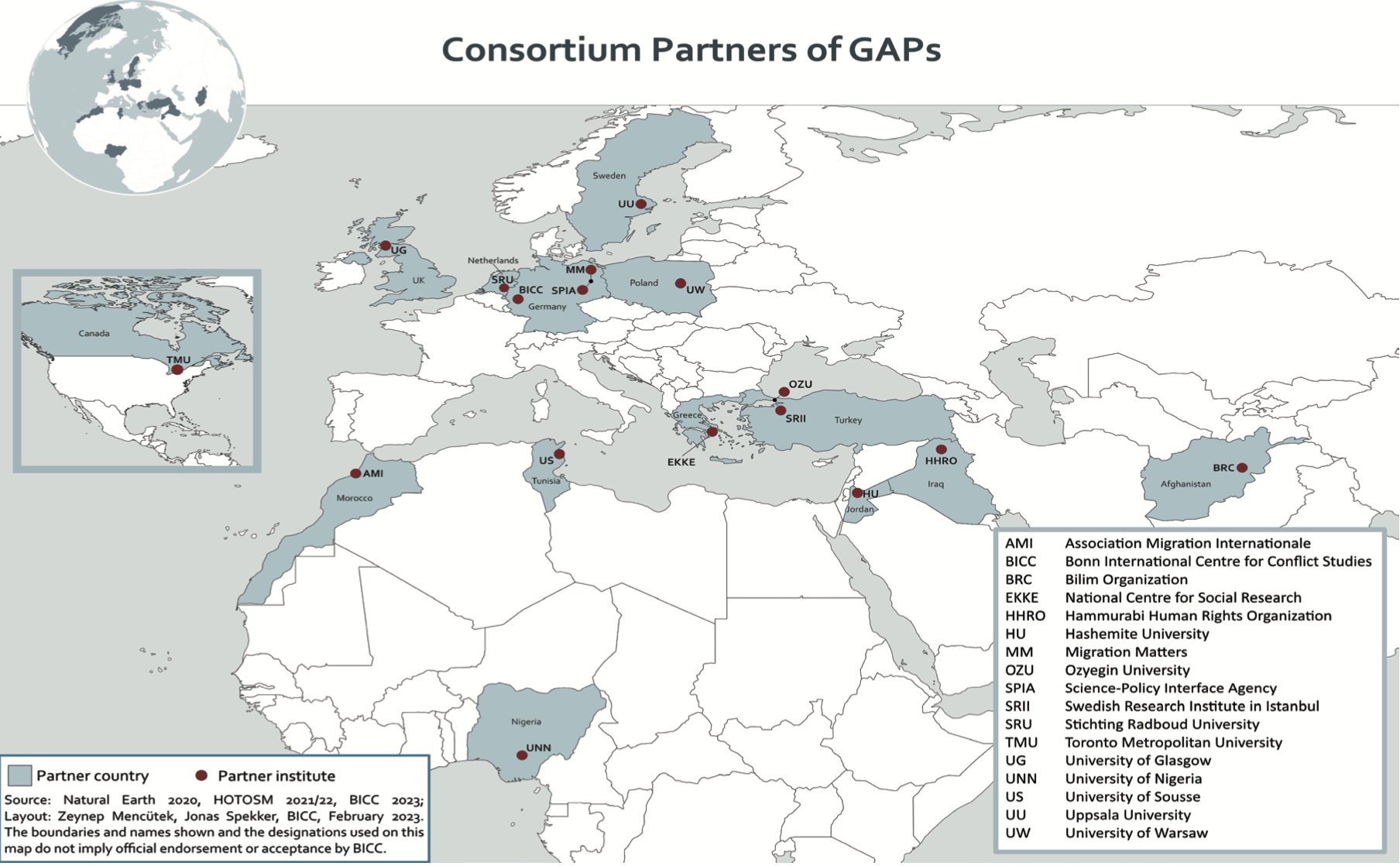Here you find a list with presentations of the GAPs team members.
GAPs is an EU-funded (Horizon, #101094341) comprehensive, transnational and interdisciplinary research project focusing on the drivers of return policies, international cooperation on returns and the experiences of migrants in the process. The project examines the disconnects between expectations of return policies and their actual outcomes by de- centring the dominant, one-sided understanding of “return policymaking”.
GAPs will: a) scrutinise the shortcomings of the EU’s governance of returns internally and externally; b) examine the complex interactions of policymakers and local actors involved in return processes to shed light on cooperation failures; c) analyse the perspectives of migrants themselves to understand their knowledge of return policies, aspirations and experiences. By taking a close look at governance, cooperation ands actor’s agency, the project is able to suggest new avenues for international cooperation, develop recommendations for stakeholders and explore alternative pathways to returning migrants.


The project combines its de-centring approach with three innovative concepts: 1) a focus on return migration infrastructures that enable GAPs to analyse governance fissures, 2) an analysis of return migration diplomacy to understand how relations among EU MSs and third countries hinder cooperation on returns, and 3) a trajectory approach that uses a socio-spatial and temporal lens to understand migrant agency. The project achieves its aims via multi-disciplinary, qualitative and quantitative comparative research in 13 countries in Europe, Africa and the broader Middle East (including Afghanistan) with 17 partner institutions
The GAPs project is coordinated by Uppsala University (Sweden) and Bonn International Centre for Conflict Studies (Germany). In addition to the Swedish Research Institute in İstanbul (SRII), University, the project’s consortium partners include Radboud University (Netherlands), Hammurabi Human Rights Organisation (Iraq), The Hashemite University (Jordan), National Centre for Social Research (Greece), Association Migration Internationale (Morocco), Ryerson University (Canada), the University of Glasgow (UK), University of Nigeria, Nsukka (Nigeria), Bilim Research and Social Studies (Afghanistan), Migration Matters (Germany), University of Warsaw (Poland), Science-Policy Interface Agency (Germany) University of Soulusse (Tunisia).

To capture geographical, socio-spatial, and political variations, the GAPs Project identifies three return systems in line with the EU’s external migration policies:
1. Central and Western Mediterranean Return route: from EU countries to Africa (Tunisia, Libya, Morocco, Nigeria, and Niger).
2. Eastern Mediterranean Return route: from EU countries to the broader Middle East (Turkey, Iraq, Syria, Jordan and Afghanistan).
3. Eastern European Return route: from EU to Eastern Europe (Ukraine, Georgia)
The project involves wide-ranging and innovative impacts, including the creation of an interactive data repository on returns, a return cooperation index, return governance indicators, policy briefs and workshops, the formation of stakeholder expert panels, a digital storytelling and video series, the launching of Massive Open Online Course (MOOC), as well as open access policy and scholarly publications.

Dr N. Ela Gökalp-Aras the Principal Investigator (PI) for GAPs at SRII. She will be working with Dr Neva Övünç Öztürk (Senior Researcher), Hakan Ünay (Researcher) and Umutcan Yüksel (Researcher).Dr Gökalp-Aras and her team will principally conduct research that focuses on the macro level, more specifically on the legal, institutional and policy framework on the return and readmission policies at the EU level and in the selected nine countries (as the lead of WP2: will lead Work Package 2 (Legal and Policy Infrastructures of Returns in the EU).
- Map the legal-institutional-policy infrastructures
- Assess these structures critically with the internal and external dimensions
- Evaluate the possible ways and methods to develop evidence-based policy- and legal guidelines
- Develop guidelines for evidence-based policy and legal guidelines